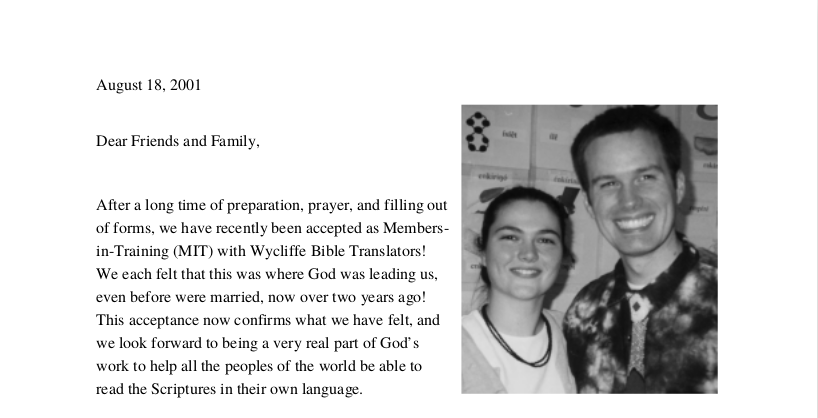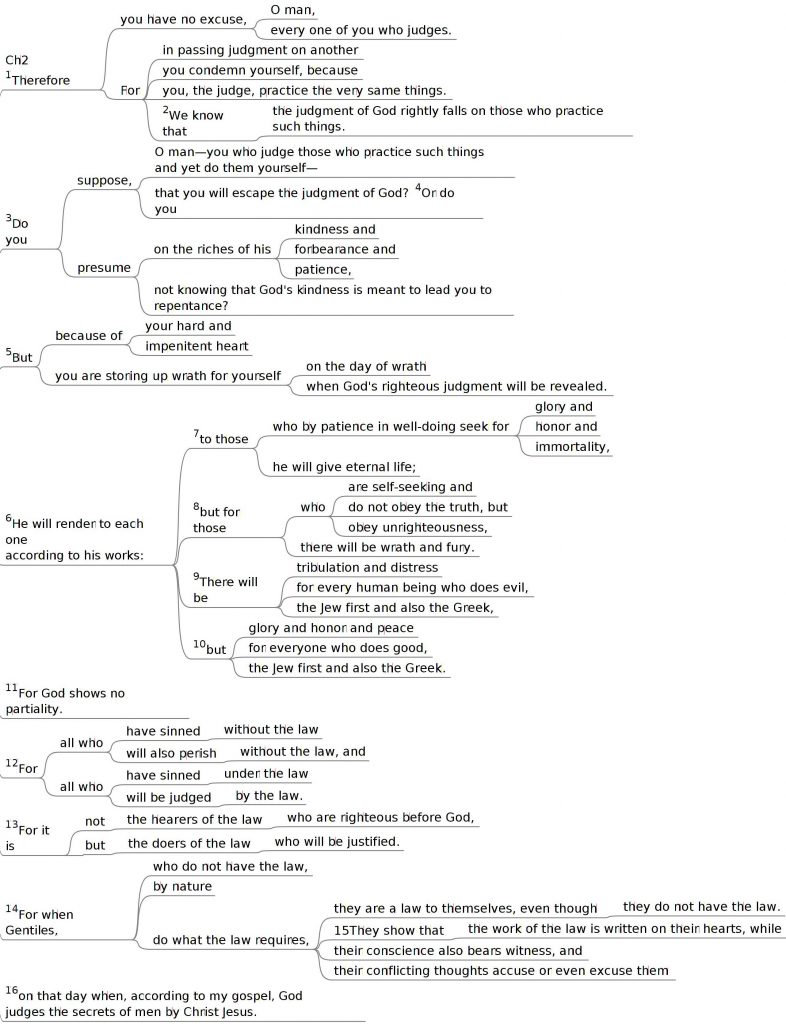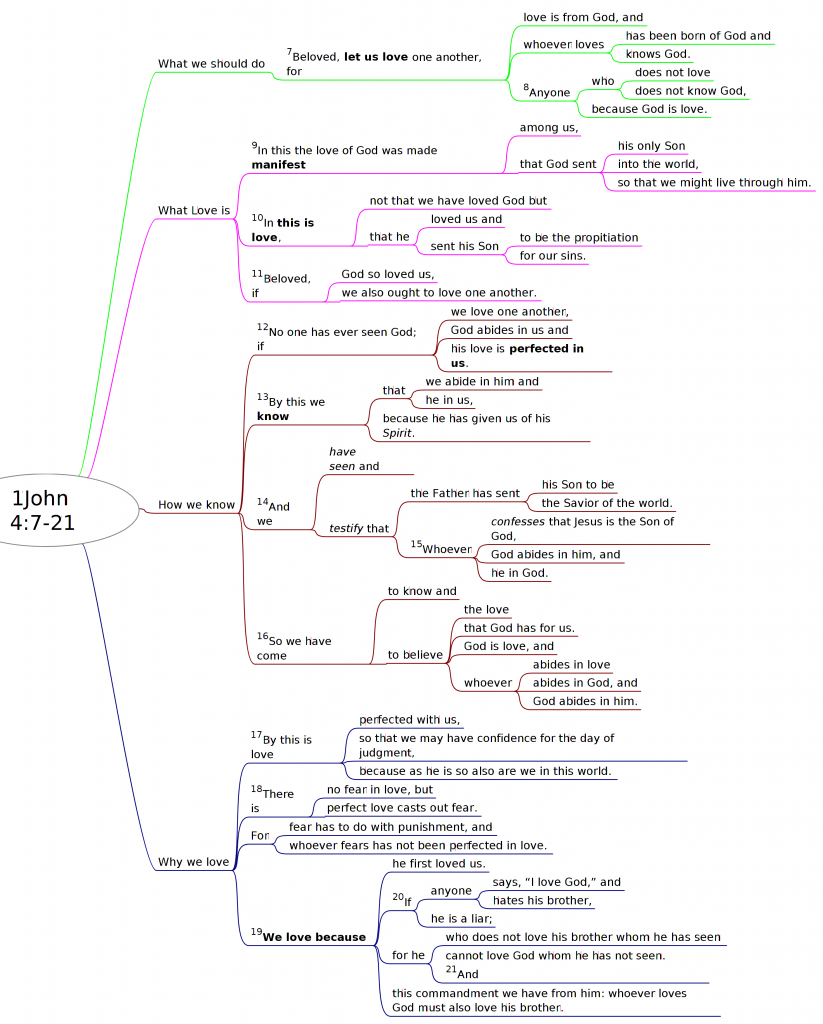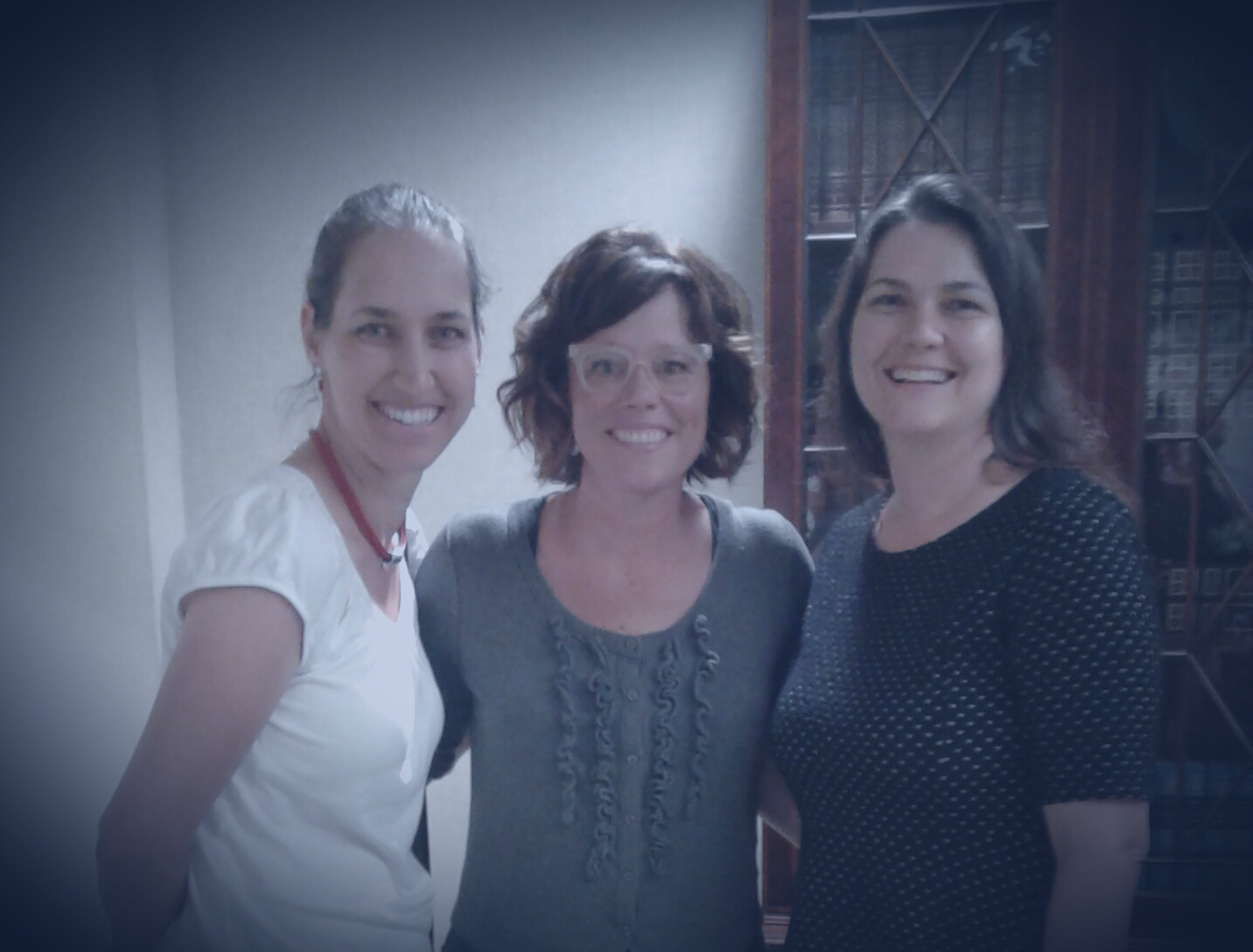Some time in the last couple months, I got wind that our local church would be studying through Romans in 2018. Some may have groaned, but I have now looked forward to it from that time, and can’t wait to get started. Some have said that God repeats lessons you don’t get the first time; and perhaps this is what God is doing with me and Romans. But despite the number of times I’ve been through this book, I still find something new that blows my mind each time, and I haven’t had enough of it yet.
My first formal Bible study, with Campus Ambassadors, was in Romans. They have a to-with-through model of ministry, so I co-taught the first quarter (by the school calendar at Oregon State University), then taught the second quarter myself (IIRC), then grabbed another student to do the third quarter. We had gone through different materials by Howard Hendricks, like this more recent publication on inductive Bible study. While Howard Hendricks has taught a lot of seminary students, his contribution to myself and my peers was to encourage and enable us to make careful study of the Bible a part of our normal layman lives. So it didn’t scare me to lead this study, since we were just looking at the text to see what it said.
My first formal Bible study in French was also the book of Romans, in Chambéry, France. The local church where we fellowshipped (while there studying French) started the study, and we joined. It felt like trying to watch a ping-pong match without being able to follow the ball, but the difficulty of trying to understand French people discussing Romans in real time forced me to learn French more fluently, as well as being a part of encouraging their growth, and growing myself. By the end of our time there, I noticed that I was following and contributing more fluently, mostly because we were joined by another anglophone couple, who felt as lost as we had when we joined.
Near the end of our first term with Wycliffe, I led a (very) small group Bible study in our church in Nairobi, again in Romans. Most weeks we only had three of us, and we didn’t make it past chapter six or so, but it was good fellowship, and we got to take it as slow as we wanted (which I’ve found is critical to not feeling like you’re drinking from a fire-hose, in studying this book).
Earlier last year, DTS started an online class on Inductive Bible study, which I followed up with another online class on Romans 1-8. These were both pretty short courses, but could be a helpful overview if you are looking for that.
And in the spring of last year, a group of men from our local church finished a formal study (on manhood, of course), and decided to keep meeting, as they often do between official church classes. We decided to do a book, and that book was Romans. So I got to compile the questions I’d developed for the study in Nairobi, adapt it to a one-chapter-a-week (i.e., breakneck) pace, and extend it to the end of the book. And I got to make a nice chart for chapter 5, and a genealogy to help follow chapter 9. But one thing I really enjoyed about this time through was that I basically came up with questions, and did some discussion leading, but it was mostly a bunch of guys studying God’s word. One of those guys even credits his conversion to follow-up on the first few chapters in that study. So I have been privileged to see God work through his word, without really being able to take credit for it myself.
Somewhat parallel with this last study, and something of a break from inductive Bible study, I started working through John Piper’s set of sermons on Romans, which he preached from April 1998 to December 2006. The 225(!) sermons are available as a single download as described here and here. This is a very careful exposition, spending sometimes multiple weeks on a single verse. And there is the added benefit that he continues to pastor his church through this series, so there are a number of tie-ins to church life (like one on small group Sunday, and another on an outdoor evangelism event), which grounds the study in realistic application. So it’s a bit like a multi-year marathon with a microscope in your hands. But I find that the long view requires a different perspective, which I have enjoyed. There is lots of digging down into a verse, then coming back up to remind us what it means in the broader perspective, before digging back down again, etc. Having not yet finished this, it remains the occasional backdrop to my exercise and road trip regimen.
Then this fall, BSF began a year in Romans. While I am not a fan of BSF, the guy who came to Christ in our Romans study earlier this year asked me to join him in doing it, and I couldn’t say no. Which meant that our whole family would be doing BSF this year, which is not a bad thing. And I also have been mindmapping it as we go (with freeplane, based on freemind), so that has been a fun addition to the study. We’re about half way through the year now, as our local church is starting a year-long series on Romans.
I like this news not just because I get to do Romans again, but because we don’t just do sermons in our local church. We publish material with material and questions aimed at helping people do inductive Bible study, individually, in small groups, or in our community group Bible studies (aka Sunday school). You can follow along and download those studies as they come out here (or pick up a printed copy at church any time the week before the sermon, if you’re in the area). Practically, this means not only do we have sermons on Romans all year, but we also get to go through Romans in our Sunday morning Bible studies, and in our home groups whenever they meet throughout the week. We all get to think about Romans together, for the whole year!
Which brings me to why our local church is doing this, and why I’m so excited about it. Our pastor has been casting a vision to have the Gospel presented in each meeting we have, throughout all church ministries. While I can see that scaring some, I think the Romans focus will really help. Because Romans is focused on the Gospel, and hits hard what it is, and what it isn’t. Sometimes I hear people say things, and I wonder how clearly they understand the Gospel. With this study, we’ll be able to address these issues head on. Those who already have the Gospel can only get a firmer grip on it, and hopefully some people will grasp it for the first time. In all, saturating more people with the Gospel can only be a good thing.
And as an added synergy benefit, I got my son the first volume of Tim Keller’s Romans for You, his accessible non-commentary on Romans. I’m hoping to go through that with him this year, both to build on what we’re doing as a church and as a family, but also as a part of his discipleship leading up to a public testimony for him. Just another reason for me to be excited about what God has for us in Romans this year.
And to be clear, one thing I love about lay Bible study is that it doesn’t take a graduate degree to get something life-changing out of the Bible. Yes, I have a graduate degree, but it’s in linguistics, not theology, nor Bible. I took one quarter of Greek in college, which I didn’t finish (the quarter of Greek, not college). I have never taken a seminary class (unless you count the online ones mentioned above). So my point is that you can get a lot out of Romans (and again and again) without needing to be an expert first.
So the Gospel is “good news”, but is it just any good news? As Christians we talk about the Good News of Jesus Christ, which is a particular good news, and not just any news that might seem good from our perspective. So what are these things I hear, you ask? Rather than prejudge the multitude of opinions out there, I’ll pose a number of questions that I think Romans will help with:
- Is the gospel about helping me live the way I want to?
- Is the gospel about giving me blessing (materially, socially, and/or spiritually)?
- Is the gospel about making me look good?
- Is the gospel a card I sign, or a prayer I pray?
- Is the gospel a set of teachings I should accept (or teach)?
- Is the gospel a means to another end, like baptism or church membership?
- Does everyone need the gospel (if not, who doesn’t)?
- Is the gospel required for salvation (if so, from what)?
- Does the gospel make me free of judgment, so I can sin as I like without consequences?
- Will the gospel make me a better person?
- Will the gospel make me accepted by people at church?
- Will the gospel make me have more friends (or lose them)?
- Will the gospel keep me from being poor (or from being rich)?
- How does the gospel interact with what I do, feel, or choose?
- Does the gospel require that I obey God?
- What happens if I accept the gospel, then screw up something really bad (like cheat on my spouse)?
- If I have screwed up something really bad (like cheated on my spouse), can I accept the gospel?
Anyway, I could go on, but I’ll not trifle with your patience. If any of the above questions are interesting to you, I encourage you to join us in studying through Romans this year. You can find the pace I’ll be taking in the scrolls (here again), and I’ll try to put some sort of drivel here on something like a weekly basis. I’d love to hear your thoughts as we go in the comments.






